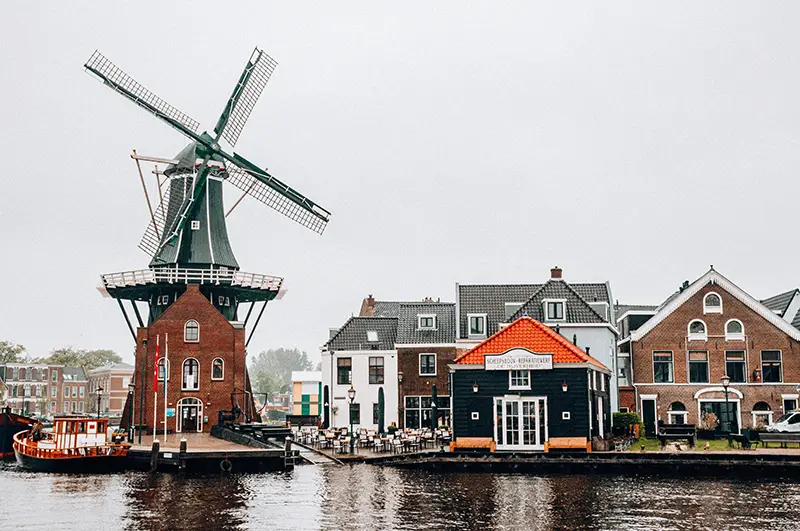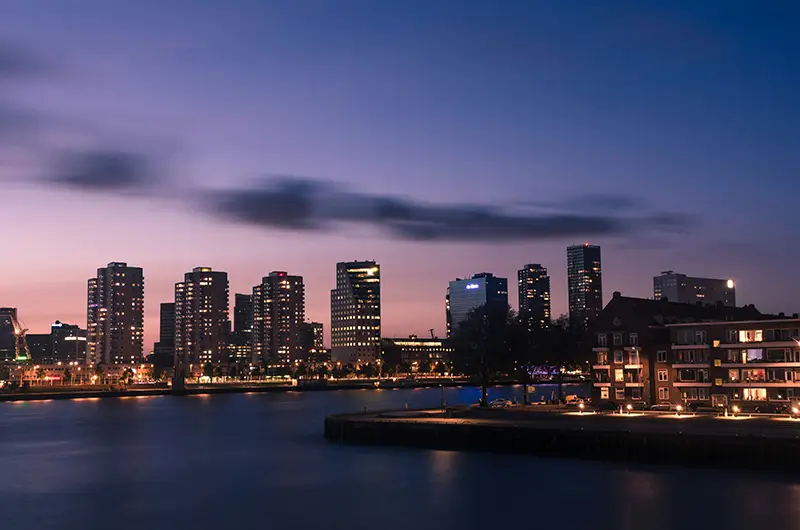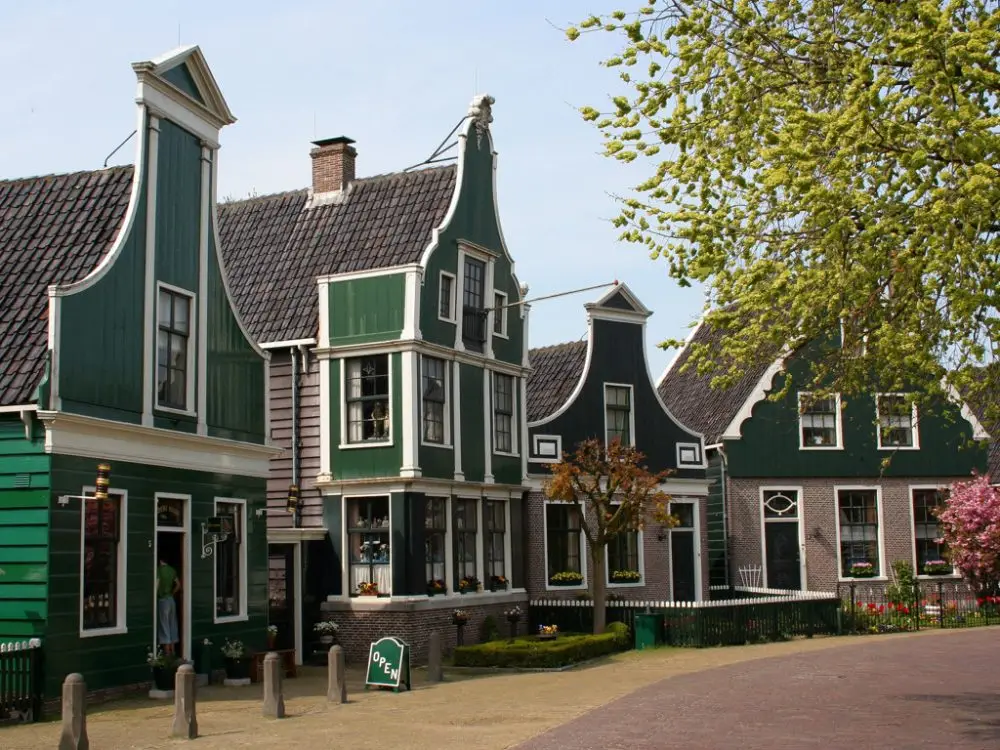The Netherlands is renowned for its architectural masterpieces, and owning a luxury home here symbolises not only a high social status, but also the ability to enjoy truly exceptional living conditions. Property in the Netherlands is an opportunity to experience a unique atmosphere where history meets modernity and prestige meets refined comfort.
Why you should pay attention to property in the Netherlands
High-end properties are not just luxury, but an investment in a stay imbued with unique Dutch traditions and quality standards. In Amsterdam, The Hague and Rotterdam you can find accommodation that harmonises historic architecture with ultra-modern technology. Holland is one of the few countries where modern homes can be located in the same neighbourhood as monuments that are several hundred years old. This creates a unique cultural and historical space.
Architectural heritage and modern technology
The Dutch know how to preserve and use historic buildings wisely. For example, many luxury apartments are adapted to modern engineering requirements, preserving their authentic appearance. The aquatic civilisation successfully introduces energy-saving technologies such as geothermal heating, solar panels and smart home systems. All this makes investing in Dutch property not only attractive, but also environmentally friendly.
Prestigious neighbourhoods and their characteristics
The Canalengracht in Amsterdam is a mecca for those who appreciate prestige and luxury. A canalside home is more than just a view of the water, it is a part of the city’s history. Premium homes in Amsterdam are often located in the neighbourhood of old mansions, allowing you to not only enjoy luxury but also feel part of history. The Hague and Rotterdam also offer unique neighbourhoods to live in, where sophistication and a high standard of living become the norm.
How real estate emphasises your status
 A symbol of prestige and success that distinguishes its owner. Each property is unique, be it the view of Amsterdam’s picturesque canals, the designer interiors or the proximity to significant cultural sites. Owning a luxury property in the Netherlands emphasises refined taste and is a sign of a high standard of living, providing opportunities to enjoy all the benefits of the modern world.
A symbol of prestige and success that distinguishes its owner. Each property is unique, be it the view of Amsterdam’s picturesque canals, the designer interiors or the proximity to significant cultural sites. Owning a luxury property in the Netherlands emphasises refined taste and is a sign of a high standard of living, providing opportunities to enjoy all the benefits of the modern world.
Views of the canals and unique interiors
Living with a canal view is not just about romance, but a daily sense of harmony and connection with nature. Apartments in the Netherlands often offer views of Amsterdam’s famous canals, where every morning can be greeted with a view of the water and historic facades that have remained unchanged for centuries. The interiors of such properties are designed by leading designers, making every detail unique.
Proximity to cultural and business centres
Privileged Estates is located near key cultural and business venues. This means that the best museums, theatres, galleries and restaurants are literally steps away. Proximity to such venues allows you to live a busy life at the centre of cultural events, as well as quick and easy access to business meetings.
What are the benefits of buying luxury property in the Netherlands
Buying a top-level residence offers the owner many advantages: a high standard of living, privacy and sustainability of the investment. The area here is constantly growing in value, making it a favourable investment for future generations. Thanks to a transparent taxation system and a stable economy, buying square metres here guarantees investment protection and minimal risks.
Tax incentives and investment prospects
Property taxes in the Netherlands are a transparent and clear system that allows you to predict future costs. In addition, there are tax incentives for buyers, which makes such investments even more attractive. Investments demonstrate stable returns, which is especially important in conditions of global economic instability. Mortgage on property in the Netherlands for foreigners is also available on favourable terms.
Privacy and high standards of living
Gated residential complexes, access to private parks and well-developed infrastructure provide a high level of privacy and security for the whole family. This is an ideal place for those who value privacy and comfort. A villa in the Netherlands is not just a home, it is a refuge from the hustle and bustle of the metropolis.
Premium estates in the tulip kingdom for family and business
Safe neighbourhoods, international schools, access to the best medical facilities make this country an ideal place to live for the whole family. Holland also offers great business opportunities.
Safety and access to education
The cost of living in The Hague State is quite high, but it corresponds to the level of services provided. Security in prestigious neighbourhoods is top-notch, and international schools and kindergartens guarantee excellent education for children. All this is attractive for families who want to provide a better future for their children. Property in Amsterdam allows you to enjoy all the benefits of city life without giving up safety and a high level of comfort.
Business opportunities and prestigious surroundings
Investing in commercial property in the Netherlands opens up prospects for international investors seeking to strengthen their position in the European market. Prestigious surroundings, proximity to business centres, convenient transport infrastructure – ideal for setting up an office or holding business meetings. The flat country is renowned for its stability and high level of economic development: business immigration offers great prospects for entrepreneurs who want to expand their opportunities.
Conclusion
 Buying property in the Netherlands is an investment in stability, prestige and a high standard of living. It is an opportunity to become part of a unique culture, enjoy architectural masterpieces and secure a future for yourself and your family in one of the most progressive countries in Europe. The birthplace of Rembrandt offers everything you need for comfort and successful business. Buying a flat in the Netherlands is not only an investment in the present, but also a certainty for the future.
Buying property in the Netherlands is an investment in stability, prestige and a high standard of living. It is an opportunity to become part of a unique culture, enjoy architectural masterpieces and secure a future for yourself and your family in one of the most progressive countries in Europe. The birthplace of Rembrandt offers everything you need for comfort and successful business. Buying a flat in the Netherlands is not only an investment in the present, but also a certainty for the future.
 en
en  ru
ru  de
de  ar
ar  es
es  nl
nl  hi
hi  fr
fr  it
it  pt
pt  el
el 









